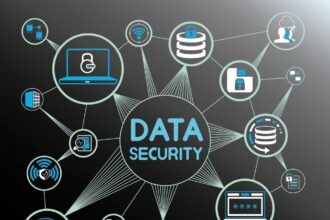 A revolution is underway in the business world, one that’s creating whole new opportunities and challenges for those involved in technology and other related fields. The revolution is centered around big data, and it’s having a big effect on information technology. IT professionals are accustomed to playing a vital role in many businesses, but that role is quickly transforming in new ways.
A revolution is underway in the business world, one that’s creating whole new opportunities and challenges for those involved in technology and other related fields. The revolution is centered around big data, and it’s having a big effect on information technology. IT professionals are accustomed to playing a vital role in many businesses, but that role is quickly transforming in new ways.
 A revolution is underway in the business world, one that’s creating whole new opportunities and challenges for those involved in technology and other related fields. The revolution is centered around big data, and it’s having a big effect on information technology. IT professionals are accustomed to playing a vital role in many businesses, but that role is quickly transforming in new ways. With big data becoming more of a common element within businesses of all shapes and sizes, IT workers will need to get on top of these changes to see how careers will be affected in the future.
A revolution is underway in the business world, one that’s creating whole new opportunities and challenges for those involved in technology and other related fields. The revolution is centered around big data, and it’s having a big effect on information technology. IT professionals are accustomed to playing a vital role in many businesses, but that role is quickly transforming in new ways. With big data becoming more of a common element within businesses of all shapes and sizes, IT workers will need to get on top of these changes to see how careers will be affected in the future.
Big data is creating a greater need for people in IT. According to the Bureau of Labor Statistics, almost 100,000 IT jobs were added in the U.S. in just 2013. That number is just the latest in what has been a steady increase in demand for those with IT skills. Expect the demand to become even greater as big data is implemented in many more businesses over the coming decade. Many analysts are confident of this trend despite the uncertain labor market because big data has many applications in many different fields, requiring the right IT people on hand to be able to use it effectively.
IT professionals will need to evolve as the uses for big data change. One way they can do this is by making their skill set much more dynamic. There are now a growing number of hybrid business-IT jobs which blend powerful IT tools and skills with business knowledge. IT workers who take the time to expand their skills will quickly find that more opportunities are available for them across the job market.
The rise of these hybrid IT jobs is just further evidence that IT can no longer exist within its own little realm. As more businesses use big data, IT workers are needed to help make sense of it all. This big data can have a profound effect on how companies conduct business, so they need IT experts to be part of these important business-making decisions. Merging IT departments with other divisions is becoming much more commonplace, even to the point where there is no significant dividing line for IT workers in some places. And as IT personnel become more influential in business decisions, there are more opportunities to become a C-level executive.
Big data analytics tools are being adopted by many industries and fields that previously has little use for it. Those same fields may have had IT workers before, but their duties were mostly limited to making sure company computers and infrastructure ran smoothly or fixing any technical problems that came up. That’s simply not the case anymore. Now retail industries, auto repair shops, health care organizations, and human resource departments have a greater need for IT personnel. Take for example the legal profession. Legal cases in this day and age traffic in a lot of data, starting at 200 GB and getting into the terabyte range. Sorting, organizing, and analyzing that data requires IT workers who are experts in big data, but they also need to have some knowledge of litigation. That’s where IT professionals need to branch out to develop subject matter expertise. If the only skills possessed by an IT worker are purely technical, jobs won’t be available in fields that require more experience in different areas.
That’s not to say technical skills aren’t still valuable to businesses, but even the technical skills sought are changing. Businesses see big data as a tool, so IT workers will need to demonstrate new big data-related skill sets, like how to properly utilize and take advantage of big data storage systems like flash storage, as well as a deeper ability to analyze data. Now more than ever, IT workers are expected to show creativity in addition to technical understanding.
Just as technology evolves, so too must IT workers if they hope to keep up with all the trends involving big data. This latest technological revolution is leading to big changes for IT, but those with a dynamic skill set and the ability to merge IT practices with business strategies will find a wealth of opportunity there for them in the coming years and decades.
Image Source:pixabay








